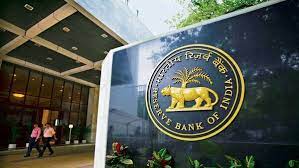
The Reserve Bank of India (RBI) has sounded an alarm over the increasing incidents of fraud related to Know Your Customer (KYC) updation, cautioning the public to be vigilant and avoid falling victim to such scams. This advisory comes as the central bank continues its efforts to protect customers from malicious practices targeting personal information.
In a statement released on Friday, the RBI urged the public not to share KYC documents or copies with unknown or unidentified individuals or organizations. The central bank emphasized the importance of safeguarding sensitive information, including account login credentials, card details, PINs, passwords, and One-Time Passwords (OTPs), and cautioned against sharing such details with anyone.
The modus operandi for these fraudulent activities typically involves customers receiving unsolicited communications, including phone calls, SMS, or emails. In these communications, individuals are often manipulated into revealing personal information or installing unauthorized apps through links provided in the messages.
RBI highlighted that fraudsters commonly create a false sense of urgency and resort to threatening language, claiming that failure to comply with their demands would result in account freezing, blocking, or closure. Once customers share essential personal or login details, unauthorized access is gained, enabling fraudsters to engage in illicit activities.
To prevent falling prey to such scams, the central bank advised the public to directly contact their respective bank or financial institution for confirmation and assistance in the event of receiving any request for KYC updation. Furthermore, individuals were urged to obtain contact numbers or customer care details exclusively through the official website or trusted sources.
In the unfortunate event of a cyber fraud incident, the RBI emphasized the importance of promptly informing the bank or financial institution. The central bank also cautioned against clicking on suspicious or unverified links received via mobile or email, as these could potentially lead to further fraudulent activities.
This cautionary advisory serves as a reminder for individuals to remain vigilant and exercise due diligence in protecting their personal and financial information. The RBI continues to emphasize the need for public cooperation in combating fraudulent practices and ensuring the security of the banking and financial ecosystem.
Sources By Agencies


